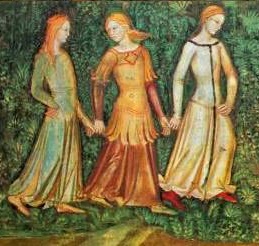Charis, Kairós. La riuscita della grazia
(Charis, Kairós: Successful Grace [With an Appendix by Enrica Cozzi: "Kairós: a 11th Century Relief in Torcello"])
DOI:
https://doi.org/10.13135/2038-6788/9891Keywords:
Charis, Grace, Kairós, Natural, Transfiguration, HumanAbstract
The essay points to some key stages in the history of the idea of grace (charis): Greek myths and poetry, Plotinus, the Christian tradition (the Biblical and theological legacy), eighteenth-century aesthetics, Schiller’s modernity, and the emergence of charme in twentieth-century thought. The common trait in the idea of grace lies in its power of subject transfiguration. Based on this concept, which has its own temporal dimension (that of kairós), the essay advances a “logic of Graces” as the thought of the overflowing of the Good. Nature and freedom are not antithetical to grace, but its direct expression.


